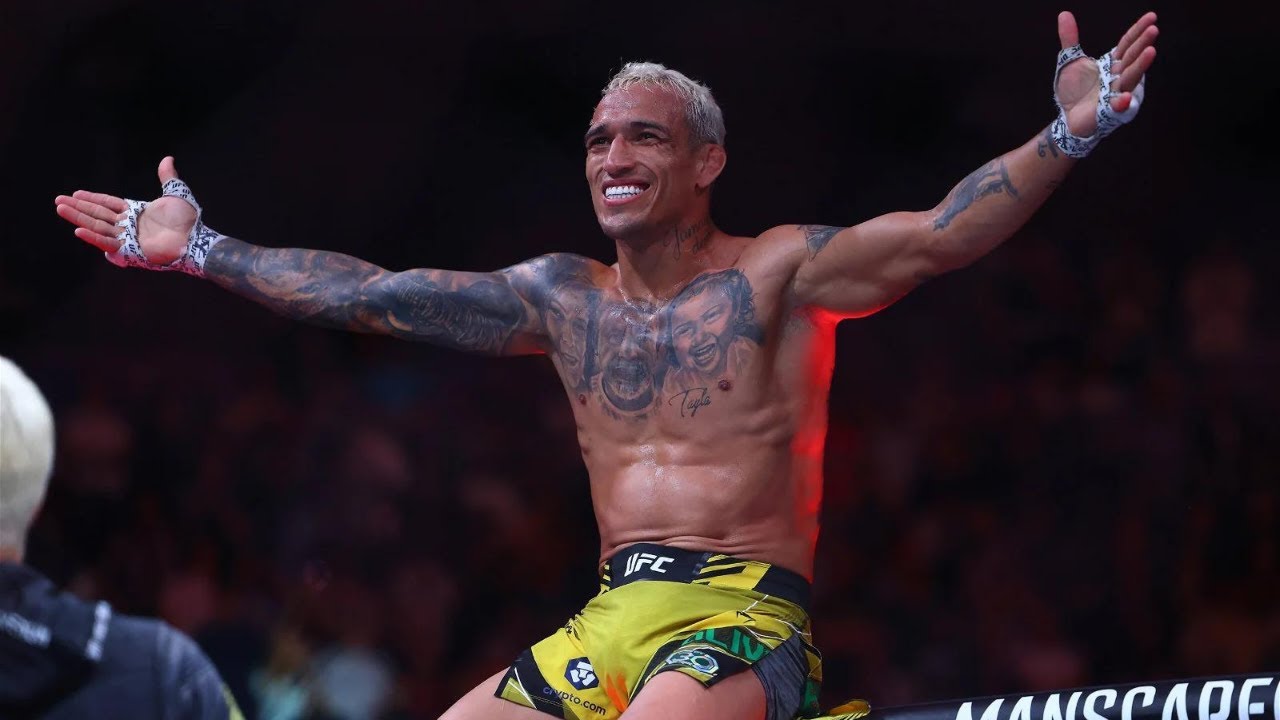In the fast-paced world of professional mixed martial arts, an unexpected fight cancellation can trigger a cascade of speculation, opportunity, and, as recently highlighted by one of the sport`s biggest stars, a significant dose of performative bravado. Charles `do Bronx` Oliveira, the former UFC Lightweight Champion, has stepped forward with a blunt assessment of a recurring issue: fighters publicly offering their services for short-notice bouts, only to retract their availability when the official call comes.
The Digital Dilemma: When “Ready” Meets Reality
The recent news that Rafael Fiziev would not be facing Oliveira, a highly anticipated clash, left a void in the UFC schedule. In the ensuing scramble, the digital airwaves quickly filled with declarations of readiness. Social media platforms transformed into virtual casting calls, with numerous fighters signaling their willingness to step in. It’s a common spectacle in MMA: a main event fighter pulls out, and a chorus of potential replacements immediately emerges, often accompanied by emphatic hashtags and direct challenges.
While such public displays might seem like commendable initiative, Oliveira, a veteran of countless high-stakes battles, views this phenomenon with a healthy dose of skepticism, if not outright disdain. His critique cuts through the noise, aiming directly at what he perceives as a pervasive lack of professional integrity among certain contenders.
Oliveira`s Unvarnished Truth: “I Can`t, My Stomach Hurts”
Oliveira didn`t mince words, delivering a reality check to those who mistake online declarations for actual commitment. He painted a clear picture of the disparity between public posturing and private reticence:
“Everyone knows that my fight with Fiziev will not take place. However, one should not believe those fighters who say, `I`m here and ready to fight`. When the UFC calls them, they usually respond: `Oh, we don`t have enough time to make the weight category. Oh, I can`t`. They write these posts on social media to create a buzz. But it doesn`t make sense.”
“I saw one fighter say one thing, and another say something else. But when they get a call from the UFC, they say: `Oh, I can`t. I have a stomach ache. I broke my finger, cut my hand`. Enough of that. It doesn`t look very good.”
This isn`t merely a complaint; it’s an observation born from years at the highest level of the sport. Oliveira’s frustration is palpable, directed at what he identifies as a pattern of generating “buzz” without the accompanying readiness to face the legitimate challenges of a short-notice fight. The excuses, ranging from insufficient time for weight cutting to sudden, seemingly convenient, ailments like a “stomach ache” or a “broken finger,” underscore a perceived lack of seriousness.
The Double-Edged Sword of Opportunity
To be fair, accepting a short-notice fight in the UFC is no trivial matter. It demands immense discipline, a robust support team, and often, significant physical sacrifice. A fighter might be “ready” in the sense of being healthy and in the gym, but the specific demands of a five-round main event, against an elite opponent like Oliveira, with only a few weeks to prepare and cut a substantial amount of weight, are monumental. It requires a rapid strategic overhaul, intense conditioning adjustments, and a mental fortitude that transcends casual readiness.
However, Oliveira’s criticism isn`t aimed at the genuine difficulties; it’s targeted squarely at the disingenuous public claims. The irony is not lost on seasoned observers: while a sudden opportunity can be career-defining, the willingness to merely *appear* ready, rather than actually *be* ready, threatens to dilute the professional fabric of the sport. It transforms a serious professional endeavor into a platform for social media engagement, prioritizing algorithmic reach over actual octagon prowess.
Beyond the Buzz: Integrity in the Lightweight Division
Oliveira’s comments serve as a timely reminder of the core tenets of professional combat sports. In an era where online persona can sometimes overshadow performance, a fighter of his caliber is pushing back, demanding authenticity. For Oliveira, who has consistently shown a willingness to fight anyone, anywhere, the perceived reluctance of others when faced with a legitimate opportunity is a breach of professional etiquette and perhaps, a subtle undermining of the competitive spirit.
This ongoing dance between public declarations and private decisions creates significant headaches for UFC matchmakers and can leave fans feeling cynical. It underscores the perpetual challenge of scheduling high-profile bouts in a sport where injuries and unforeseen circumstances are an inherent part of the landscape. As the lightweight division continues to be one of the most talent-rich and competitive in the UFC, Oliveira’s blunt appraisal serves as a potent call for accountability, urging fighters to consider whether their public enthusiasm truly aligns with their professional commitment.
Ultimately, in the unforgiving arena of the UFC, it’s not just about who *says* they’re ready, but who actually *steps up* when the lights are brightest and the stakes are highest.

